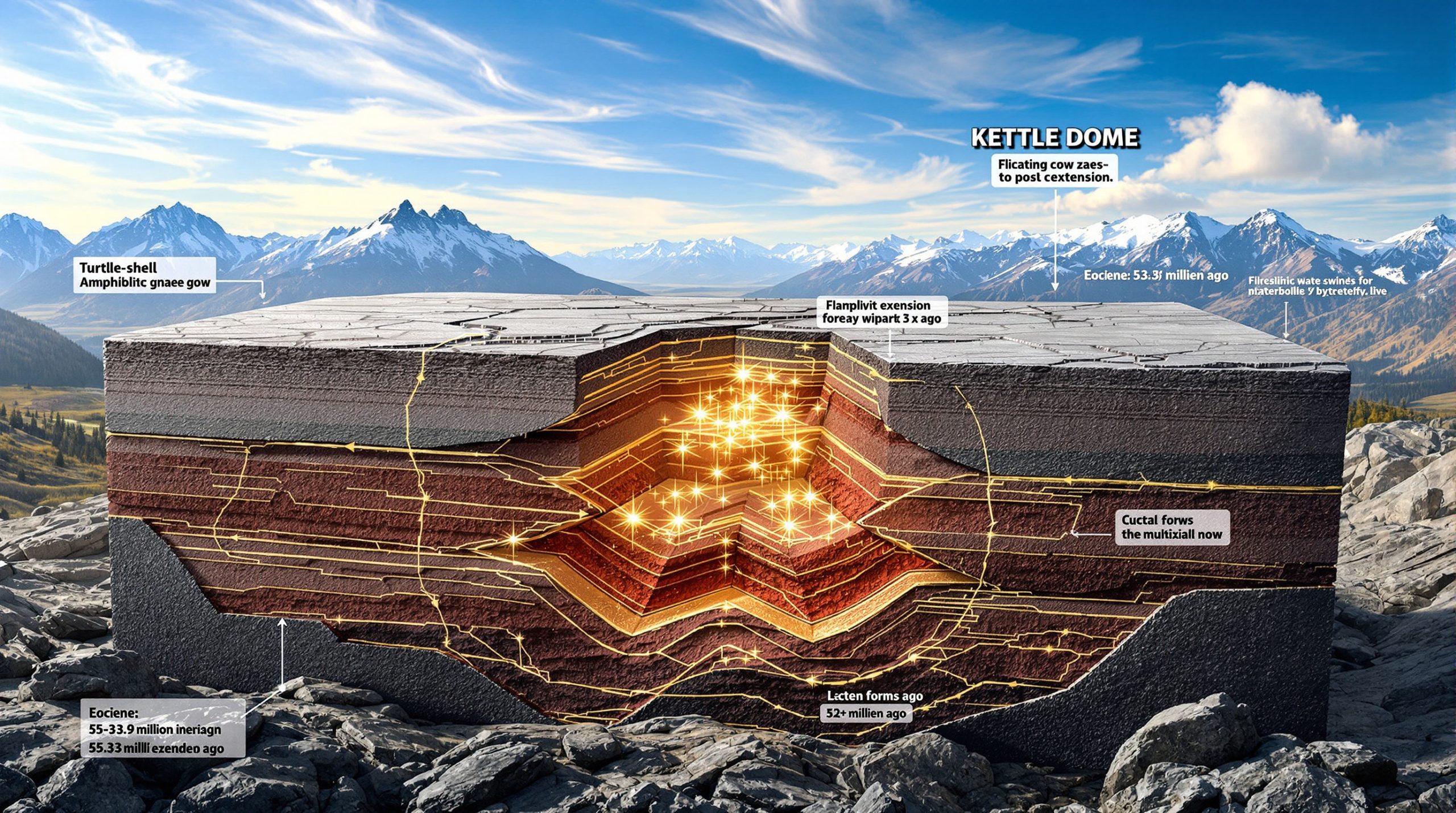Ghana and Gold Fields Reach Transitional Deal on Damang Mine
The transitional agreement between Ghana and Gold Fields regarding the Damang mine represents a pivotal shift in Ghana's mining policy, marking the first instance where the government has rejected automatic lease renewal for a major foreign mining operator. The 12-month transitional lease, pending parliamentary ratification in May 2025, allows Gold Fields to resume open-pit mining while conducting mining feasibility studies to assess the mine's remaining reserves and operational viability. This arrangement introduces joint government-company oversight of existing stockpile processing, signaling Ghana's intent to assert greater control over its mineral resources while maintaining foreign collaboration. The deal's implications extend beyond Damang, potentially reshaping negotiations for Gold Fields' larger Tarkwa mine, whose lease expires in 2027.
What is the Damang Mine Agreement Between Ghana and Gold Fields?
Ghana's rejection of Gold Fields' lease renewal application for the Damang mine culminated in a 12-month transitional agreement that balances immediate operational continuity with long-term strategic reassessment. The deal reflects Ghana's evolving mining governance framework, prioritizing national oversight without completely displacing foreign expertise.
Key Terms of the Transitional Agreement
The transitional lease mandates Gold Fields' subsidiary to conduct comprehensive feasibility studies while continuing limited mining activities. Parliamentary ratification, expected in May 2025, will formalize this interim arrangement. Joint supervisory committees comprising government and corporate representatives will oversee stockpile processing, ensuring transparency in resource accounting during the transition.
This dual oversight mechanism establishes a precedent for future public-private partnerships in Ghana's mining sector. The agreement also requires Gold Fields to provide technical training to Ghanaian mining professionals, facilitating knowledge transfer during the transition period.
Significance for Ghana's Mining Sector
Ghana's departure from automatic lease renewals challenges long-standing norms in African mineral resource governance. As the continent's largest gold producer, Ghana's policy shift could influence neighboring nations to renegotiate terms with multinational mining firms. The Damang case demonstrates how governments can leverage expiring leases to reclaim negotiating power, particularly for assets with underexplored reserve potential.
This agreement represents a strategic shift in Ghana's resource management approach, moving from passive rent collection to active participation in operational decisions. Industry analysts note this transition aligns with global market insights but takes a more collaborative approach than seen in other jurisdictions.
Why Did Ghana Take Control of the Damang Mine?
Ghana's intervention at Damang stems from a strategic reassessment of mining sector governance, prioritizing national economic interests over foreign operator convenience. The decision aligns with broader African resource nationalism trends but adopts a more nuanced approach compared to abrupt nationalizations seen elsewhere.
Ghana's Mining Policy Evolution
The Minerals and Mining Act of 2006 (Act 703) previously facilitated automatic renewals, but recent amendments emphasize performance-based evaluations and local value retention. This policy shift reflects Ghana's ambition to optimize mining revenue capture while ensuring sustainable development outcomes. The government's increased technical capacity enables more sophisticated oversight, reducing reliance on corporate-reported data for decision-making.
Geological assessments indicate Damang's deeper ore bodies contain higher grade deposits averaging 2.5-3.0 g/t gold compared to the 1.5-2.0 g/t in currently mined zones. This underdeveloped potential likely influenced Ghana's decision to reassess operational control rather than simply extending existing arrangements.
Impact on Gold Fields' Operations
For Gold Fields, the Damang transition introduces operational complexities. The mine's smaller scale (contributing approximately 15% of the company's Ghanaian output) allowed the government to test new negotiation frameworks without jeopardizing bulk production. However, the company's description of the situation as "far from ideal" underscores concerns about precedent-setting for its larger Tarkwa operations.
The transition creates uncertainties regarding workforce retention, supply chain continuity, and capital investment planning. Gold Fields must now balance short-term compliance with long-term strategic positioning in what remains one of its most important regional hubs.
How Will This Agreement Affect Gold Fields' Future in Ghana?
The Damang transitional deal serves as a litmus test for Gold Fields' continued operations in Ghana, particularly regarding the critical Tarkwa mine. With Tarkwa accounting for 85% of the company's Ghanaian gold output, its 2027 lease renewal negotiations will likely incorporate lessons from the Damang experience.
Tarkwa Mine Considerations
Gold Fields has initiated early renewal discussions for Tarkwa, reflecting heightened risk mitigation strategies. The company's emphasis on securing "certainty" mirrors investor concerns about regulatory stability in emerging mining jurisdictions. Ghana's willingness to provide assurances against repeated transitional arrangements suggests recognition of Tarkwa's economic significance, which contributes 5% to national GDP through direct and indirect channels.
Tarkwa's technical complexity, including its carbon-in-leach processing facility and sophisticated water management systems, makes operational transitions more challenging than at Damang. This gives Gold Fields leverage in negotiations, as knowledge transfer would require significant time and expertise.
Gold Fields' Response to the Situation
The company's dual strategy combines operational compliance at Damang with proactive engagement on Tarkwa's renewal. This approach balances short-term concession with long-term positioning, recognizing Ghana's central role in Gold Fields' African portfolio. Management's focus on early renewal applications reflects adapted corporate strategies in response to shifting regulatory landscapes.
Market analysts note that Gold Fields has increased community investment programs by 30% since the Damang decision, likely aiming to strengthen local stakeholder support ahead of Tarkwa negotiations. This strategic stakeholder management demonstrates the company's recognition that social license has become as important as formal permitting.
What Are the Economic Implications for Both Parties?
The Damang agreement recalibrates risk-reward dynamics between Ghana and Gold Fields, with implications for fiscal planning and investment climates.
Financial Considerations for Gold Fields
Transition costs, including feasibility studies and operational adjustments, are estimated at $15–20 million, representing 8–10% of Damang's annual operational budget. While manageable for a multinational operator, these expenses highlight the growing cost of regulatory compliance in maturing mining jurisdictions. Investor confidence metrics in Ghana's mining sector show a 12% volatility increase since the Damang decision, reflecting market sensitivity to policy changes.
Metallurgical challenges at Damang, including increasing sulfide content in deeper ore zones requiring modified processing techniques, add complexity to valuation models. These technical factors likely influenced Gold Fields' willingness to accept the transitional arrangement rather than contest the decision through international arbitration.
Economic Impact for Ghana
The government anticipates a 7–9% increase in mining revenue shares through revised fiscal terms, potentially generating an additional $50 million annually if applied sector-wide. However, the challenge lies in balancing revenue optimization with maintaining Ghana's position as Africa's top FDI destination for mining, which attracted $1.2 billion in 2024.
Ghana's mining ministry has established a specialized technical unit to oversee the transition, staffed with professionals who previously worked with international miners. This capacity-building effort demonstrates Ghana's commitment to developing indigenous expertise rather than merely changing ownership structures.
Mining Industry Trends and Regional Context
The Ghana-Gold Fields agreement reflects broader shifts in African mining governance, with implications extending beyond this specific case. Understanding these contextual factors provides insight into likely future developments.
Evolving Investor-State Relationships
Across Africa, mining contracts signed in the early 2000s are reaching renewal phases, prompting reassessment of terms negotiated during commodity price downturns. Ghana's approach—seeking greater involvement without full nationalization—represents a moderate position compared to more aggressive resource nationalism seen in countries like Tanzania and Zambia.
Industry data indicates that mining agreements negotiated after 2020 contain an average of 22% more provisions related to local content, environmental compliance, and community development than those from the previous decade. This trend suggests Ghana's approach aligns with emerging mining ESG challenges rather than representing an outlier position.
Environmental and Social Governance Considerations
The transitional agreement includes enhanced environmental monitoring provisions, reflecting growing scrutiny of mining's ecological footprint. Damang's proximity to the Bonsa River system has raised concerns about acid mine drainage and mercury contamination, issues that will require careful management during the transition period.
Local communities have expressed mixed reactions, with some welcoming increased Ghanaian participation while others worry about employment stability. The agreement mandates maintaining current employment levels during the transition, addressing a key social concern in mining-dependent communities.
Conclusion
Ghana's transitional agreement with Gold Fields represents a watershed moment in African resource governance, demonstrating how governments can assert greater control without precipitating investor flight. The Damang model's success will hinge on transparent implementation and its replication potential across larger assets like Tarkwa. For multinational miners, this case underscores the imperative of adaptive strategies in evolving regulatory environments, blending technical cooperation with proactive stakeholder engagement.
As both parties navigate this transitional period, the outcomes will likely influence mining governance frameworks throughout West Africa. The balance achieved between national sovereignty and investor confidence will determine whether the Ghana-Gold Fields agreement becomes a template for sustainable partnership or a cautionary tale about negotiation breakdowns in resource-rich economies.
For investors looking to understand the broader implications, a comprehensive beginner's mining guide can provide context about how such developments affect investment decisions. Additionally, recent gold market analysis suggests these governance shifts may have wider implications for gold pricing and production forecasts globally.
Disclaimer: This article contains analysis and speculation about future mining policy developments. The information presented should not be interpreted as investment advice. Mining operations involve complex technical, regulatory, and financial considerations that require professional assessment.
Want to Invest in the Next Major Gold Discovery?
Stay ahead of the market with real-time alerts on significant ASX mineral discoveries through Discovery Alert's proprietary Discovery IQ model, transforming complex data into actionable investment insights. Visit our dedicated discoveries page to understand why major mineral discoveries like those in Ghana can lead to substantial returns, and begin your 30-day free trial today to position yourself ahead of the market.




